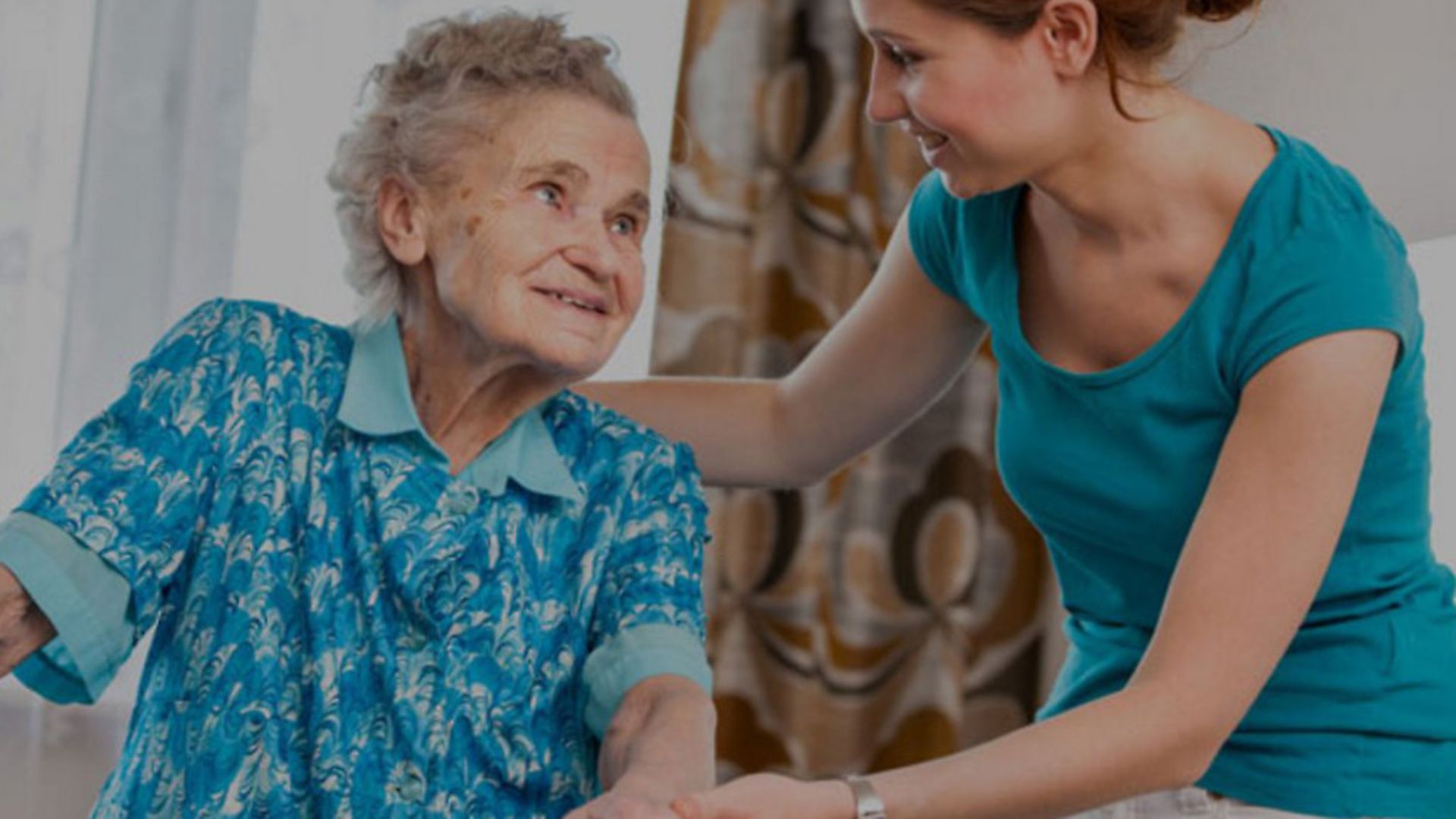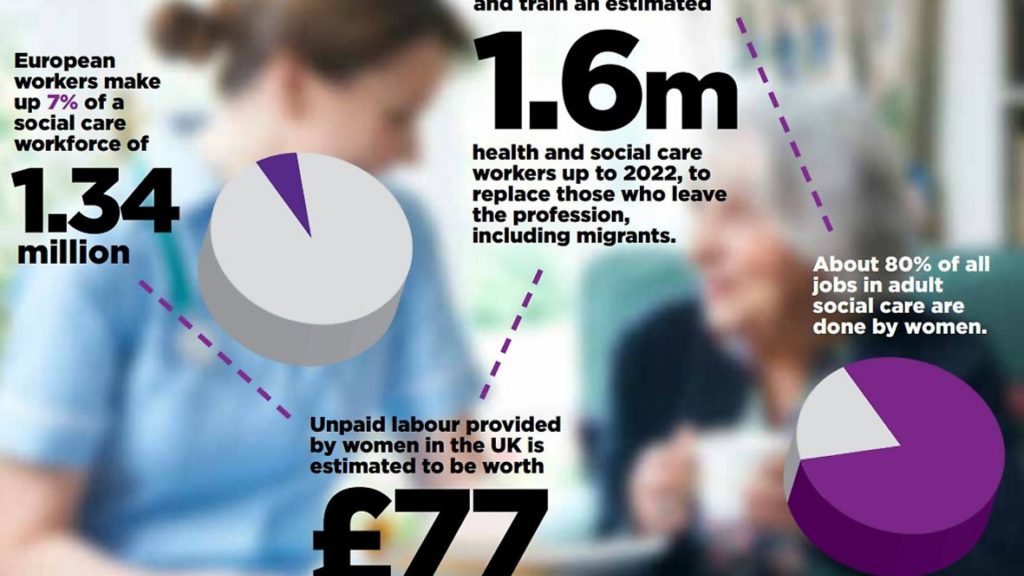
The social care system is at breaking point and Brexit is only going to make it worse. Dr Frances Ryan explores a looming catastrophe.

Ask politicians to name the biggest issues facing this country over the next decade and two words are almost certain to come up: Brexit and social care.
And yet there’s barely a word being spoken about the impact of the two combined – or what I sometimes think of as the sort of colossal collision that would be felt from a thousand miles away.
The social care system is already on its knees. Since 2010 it has been hit by cuts of £6 billion and counting. One million disabled people are now living without the support they need, with another 1.2 million older people in a similar position.
Flick through scores of research into the human beings behind the figures and it’s a brutal picture, from wheelchair users left 14 hours without help to get to the toilet to a sharp rise in the elderly dying after a fall.
On top of this, experts are warning that the care sector is ‘in crisis’ due to staff shortages, with low pay, zero-hour contracts, overworked conditions and outsourcing leaving councils and care homes struggling to hire and retain qualified carers. And it is predominantly European migrants who are coming to the rescue. The number of non-British EU nationals working in the UK’s social care system has increased rapidly in recent years, shooting up by more than 40% between 2014 and 2017. In total, European workers make up 7% of a social care workforce of 1.34 million.
And yet, in our ever-hostile immigration climate, we are gearing up to shut out EU workers just as we need them most. This month, Theresa May was rightly criticised for blocking requests to allow more overseas doctors in to Britain to fill staff shortages because of tight immigration rules, despite the fact the NHS has among the lowest per capita numbers of doctors and nurses in the western world.
This is just as much a problem for the care industry, particularly when it comes to Brexit. Ministers admit as much: last year, Brexit secretary David Davis let slip that it will take ‘years and years’ to fill the jobs that would otherwise have been done by EU immigrants. Meanwhile Jeremy Hunt could be found acknowledging that ‘frankly, [the social care system] would fall over without their help’.
When a country’s social care system crumbles, one of two things happens. First, the people relying on the state to help them dress or wash simply do not get it. I talk weekly to disabled people who – even without Brexit – have had their support packages removed. Wheelchair users who are malnourished because the council stopped sending an assistant round to cook them a hot meal. Amputees, turned down for care slots to help them get to the toilet and told instead to use adult nappies, despite not being incontinent. And second, unpaid family members are forced to try and fill the gaps.
This is predominantly a service filled by women: wives looking after elderly in-laws; mothers caring for adult disabled children. This is, in many ways, Britain’s secret workforce, a sea of women doing what is often a full-time job, for meagre benefits or no pay at all.
Out of the 6.5 million unpaid carers in the UK almost six in 10 are women. This increases to more than seven in 10 for those receiving Carer’s Allowance. Female carers also are more likely to be providing round-the-clock care – that’s more than 50 hours a week – as well as being more likely to be sandwich carers, meaning they’re looking after young children and elderly parents at the same time.
The paid care sector itself is even more gendered: the Kingsfund thinktank shows about 80% of all jobs in adult social care are done by women, rising to 85-95% in direct care giving roles.
This month, one social care recruitment specialist company, Cohesion, released a study entitled ‘Jobs for the boys’, in which it spoke of men having a disproportionately higher drop-out rate during the application stage and the gender bias in recruitment: men are said to struggle to be recruited for social care roles because of gender stereotypes among these traditionally female-led jobs.
Be it EU nationals as the backbone of the care profession or women quietly keeping the wheels turning for their families, caring labour – traditionally seen as female ergo lesser – is routinely unappreciated. It’s just women’s work, right? Or jobs for the foreigners no one else wants to do.
In reality, unpaid labour provided by women in the UK is estimated to be worth £77bn per year and women are sacrificing their careers and often their mental and physical health to take the strain. Dedicated European care staff, meanwhile, are providing a vital service – often on poverty wages – and being rewarded with an uncertain post-Brexit future.
Ensuring their right stay in the UK, as well as providing a route in for migrant workers who wish to work in the care industry after we leave the EU is the only way to stop the coming car crash. And yet even this alone seems insufficient. As we protect the stream of EU care workers, we should surely look at the bigger picture: treating the people doing what’s increasingly one of the country’s most important jobs as little more than a thankless underclass. Decent wages and improved training for care staff, as well as a serious analysis of the role of outsourced companies are long overdue from politicians of all stripes. If decency doesn’t do it, cold hard self-preservation should. Analysis by the Institute for Public Policy Research shows the UK will need to attract and train an estimated 1.6 million health and social care workers up to 2022, to replace those who leave the profession, including migrants.
The first step to solving the staffing crisis may be a little more prosaic: reframing the dismissive attitudes to caring labour and its place in all our lives. That’s going to mean valuing migrants and women alike.
Dr Frances Ryan is a journalist and political commentator









